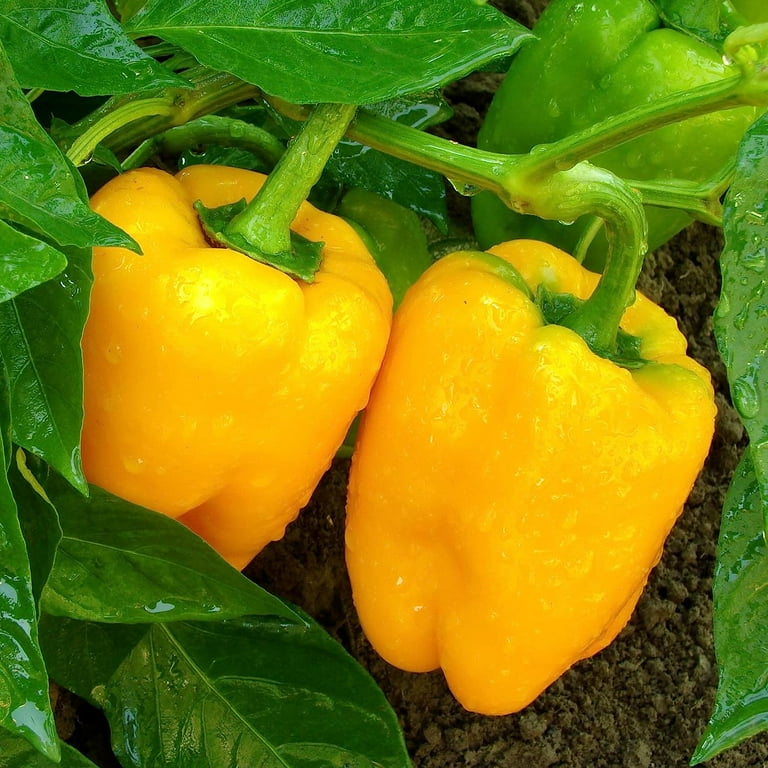Top-Rated Fertilizers for Peppers: Boost Your Harvest Top Quality
Top-Rated Fertilizers for Peppers: Boost Your Harvest Top Quality
Blog Article
Organic Vs. Synthetic Fertilizers: Which Is Best for Nurturing Healthy And Balanced Pepper Plants?
In the world of supporting healthy and balanced pepper plants, the selection between synthetic and organic plant foods stands as a critical choice with far-reaching ramifications. While both alternatives objective to offer crucial nutrients to support plant growth, the nuances of their effect on the soil, plant health and wellness, and the setting stimulate a dispute that echoes throughout the gardening neighborhood. Comprehending the unique advantages and possible risks of each plant food kind is vital for pepper farmers looking for to maximize their yields while preserving a lasting and eco-conscious approach.
Benefits of Organic Fertilizers
Organic plant foods offer an environmentally-friendly and sustainable approach to nourishing pepper plants, providing essential nutrients without the use of synthetic chemicals. These natural fertilizers are derived from natural sources such as compost, manure, bone meal, and algae, promoting soil wellness and biodiversity. Unlike artificial plant foods, natural options release nutrients gradually, making certain a well balanced and constant supply for pepper plants to thrive.
One significant benefit of natural fertilizers is their ability to enhance dirt framework and water retention. By boosting dirt wellness, organic plant foods advertise advantageous microbial activity, which aids in nutrient uptake by pepper plants. Furthermore, organic fertilizers reduce the threat of chemical run-off, securing water resources from pollution and guarding the atmosphere.
Moreover, organic fertilizers add to lasting soil fertility by promoting the growth of beneficial dirt organisms. These organisms assist break down natural issue, releasing nutrients in a type that is quickly obtainable to pepper plants. best fertilizers for peppers. By fostering a healthy dirt environment, natural plant foods support lasting pepper farming practices that benefit both plants and the atmosphere
Disadvantages of Synthetic Plant Foods
Synthetic fertilizers, in contrast to their natural equivalents, pose various disadvantages when used to nourish pepper plants, impacting both plant wellness and environmental sustainability. One major downside of synthetic plant foods is their propensity to leach nutrients from the soil rapidly. This rapid leaching can result in nutrient discrepancies in the dirt, triggering plants to deal with deficiencies or toxicities. In addition, artificial fertilizers can damage beneficial soil organisms, such as earthworms and useful bacteria, interfering with the dirt ecosystem's equilibrium.
In addition, the overuse of synthetic plant foods can add to water air pollution. Excess fertilizers not absorbed by plants can wash away into water bodies, bring about eutrophication, where algae flowers deplete oxygen levels in the water, harming aquatic life. Synthetic fertilizers are generally acquired from non-renewable sources, such as fossil fuels, adding to carbon exhausts and environmental degradation during their manufacturing.
Nutrient Absorption Contrast
Reliable nutrient absorption plays a vital role in the general wellness and growth of pepper plants. When comparing synthetic and organic fertilizers in terms of nutrient absorption, natural fertilizers have the benefit of supplying an extra well balanced and slow-release source of nutrients (best fertilizers for peppers). Organic plant foods include a range of macro and trace elements that are not only advantageous for the plants yet also advertise healthy and balanced soil microbial task, which helps in nutrient uptake. On the other hand, synthetic fertilizers frequently supply a quick launch of nutrients, which can cause seeping and runoff, causing lower nutrient absorption rates by the plants.
Moreover, organic plant foods improve dirt framework and water retention capability, enabling pepper plants to gain access to nutrients extra effectively. This better soil high quality helps with root development, enabling much better nutrient absorption. Synthetic plant foods, although at first improving plant development because of their high nutrient concentrations, may hinder long-term nutrient absorption by degrading dirt health and wellness gradually.
Environmental Impact Factors To Consider

On the other hand, synthetic fertilizers, although commonly even more focused and right away offered to plants, can have harmful impacts on the environment otherwise applied effectively (best fertilizers for peppers). Their manufacturing calls for high energy inputs, resulting in greenhouse gas emissions and adding to climate modification. The runoff of excess artificial plant foods can pollute water sources, leading to eutrophication and hurting aquatic ecological communities.
Ideal Plant Food Practices for Peppers
To achieve this, it is necessary to comply with finest fertilizer practices tailored to the details requirements of pepper plants. One vital method is to perform a soil examination prior to applying any plant foods.
Another crucial technique is to fertilize pepper plants at the appropriate time. Usually, peppers take advantage of obtaining plant food at planting and after that once again when they start to flower. Over-fertilizing can result in vitamins and mineral inequalities and damage the plants, so it is crucial to follow suggested application prices.
In addition, picking a well balanced fertilizer with an NPK proportion that suits pepper plants' needs is fundamental. Organic plant foods, such as compost or manure, can be exceptional options as they launch nutrients slowly and improve dirt framework with time. more helpful hints Synthetic fertilizers can provide a fast nutrient boost when required. Eventually, combining natural and artificial plant foods judiciously can assist support healthy and balanced pepper plants while reducing environmental impact.
Verdict

Organic plant foods supply an environmentally-friendly and lasting method to beneficial pepper plants, giving essential nutrients click reference without the usage of artificial chemicals. Unlike synthetic plant foods, natural alternatives launch nutrients gradually, guaranteeing a balanced and constant supply for pepper plants to flourish.
Artificial fertilizers, in contrast to their organic counterparts, present various disadvantages when made use of to nurture pepper plants, influencing both plant wellness and ecological sustainability. When comparing artificial and natural fertilizers in terms of nutrient absorption, organic fertilizers have the benefit of supplying an extra balanced and slow-release resource of nutrients.Furthermore, organic plant foods improve soil structure and water retention capacity, allowing pepper plants to access nutrients much more efficiently.
Report this page